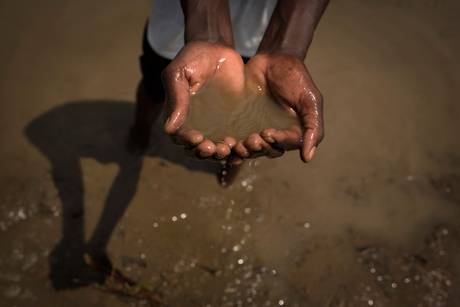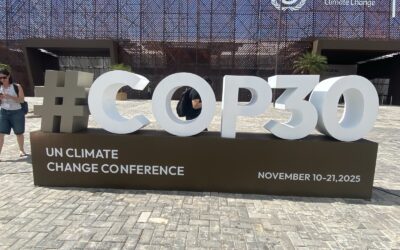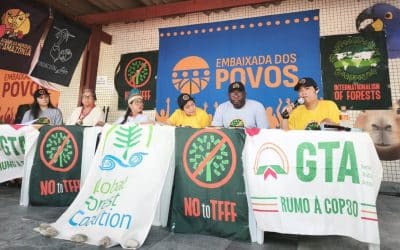PRESS RELEASE
31 Aug, Durban: The Global Forest Coalition (GFC) has brought together more than 100 indigenous peoples and forest community members from over 40 countries around the world to Durban for its Fostering Community Conservation Conference that will take place from 31 Aug- 4 Sep.
This initiative represents the real way in which forests and communities should and have always co-existed, with communities protecting and conserving their indigenous territories as they have long standing ties to their land. “Contrary to what is assumed in many international policy processes, local communities are not threats to forests, they don’t overexploit them; they are actually the ones who have maintained these territories and guaranteed that they continue to exist and need policy support to continue their efforts”, said Diego Cardona, Chairperson of Global Forest Coalition.
In many traditional conservation efforts, like national parks, local communities are often evicted from their lands or marginalized from their forest dependent sources of livelihoods. However, there is a growing body of scientific evidence that forest communities’ are the real conservation heroes, as their efforts are often more cost efficient and effective than in government protected areas.
A recent study confirmed, that while government efforts may fall short, local communities observe, manage, and protect their environment [1]. “We are capable of protecting and conserving our forests, biodiversity and cultural heritage when our rights are protected and respected,” said Nadezhda Seliuk of the Primorsky Association of Indigenous Peoples from Far East Russia, one of the many Indigenous participants at the conference.
The Global Forest Coalition, together with a number of Indigenous Peoples organizations and NGOs, is in the process of carrying out bottom up assessments of community led conservation efforts in communities across at least 20 countries like Samoa, Iran, Uganda, South Africa, Paraguay, Chile among many others. The communities themselves are documenting the things that women and men do to protect their territories, as well as the many threats that they face.
In South Africa, industrial timber plantations are a major threat. These are replacing indigenous plants that have traditionally formed an important part of local medicine, food, and well being. The run off from these plantations is also polluting rivers and silting up wetlands and estuaries. As part of the upcoming World Forestry Congress, taking place in Durban from 7-11 September, the timber industry will be pushing for the expansion of tree plantations as part of its so-called Sustainable Forest Management (SFM) agenda, something that Wally Menne of the South African Timberwatch Coalition said “is one of the biggest threats to the survival of real forests and important natural vegetation-types including grasslands and South Africa’s unique Fynbos. Tree plantations are not forests. This idea is something the timber industry has been trying to pass off. In fact they cause irreversible ecological damage to real forests, while undermining the livelihoods of local communities and indigenous peoples, and their capacity to protect their lands for the benefit of future generations.”
GFC plans to bring the results and recommendations of this conference to the World Forestry Congress. GFC is also strongly supporting the CSAP (Civil Society Alternative Programme) [2] – an alternative platform to the World Forestry Congress that will provide a space for civil society and social movements’ voices to be heard.
A formal press conference about the Fostering Community Conservation Conference will take place at the Blue Waters Hotel on the 2rd September, Wednesday at 2pm.
Our press kit and list of spokespersons for interviews is available here.
For more information on the Fostering Community Conservation Conference, and the participating speakers, please visit this link.
Follow us on twitter @gfc123
Media contact:
Ashlesha Khadse
In Durban cell and whatsapp: +27 81 444 8399 ashlesha@globalforestcoalition.org




